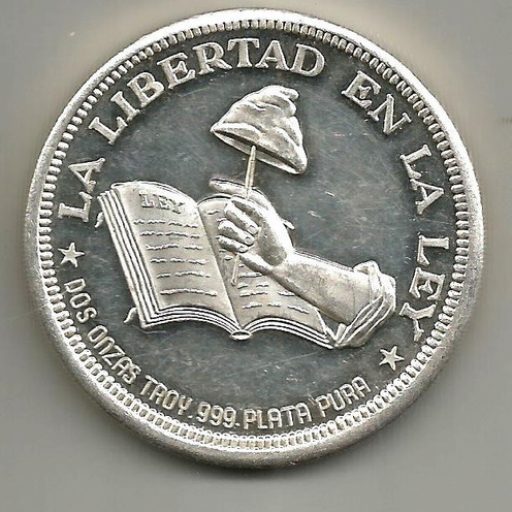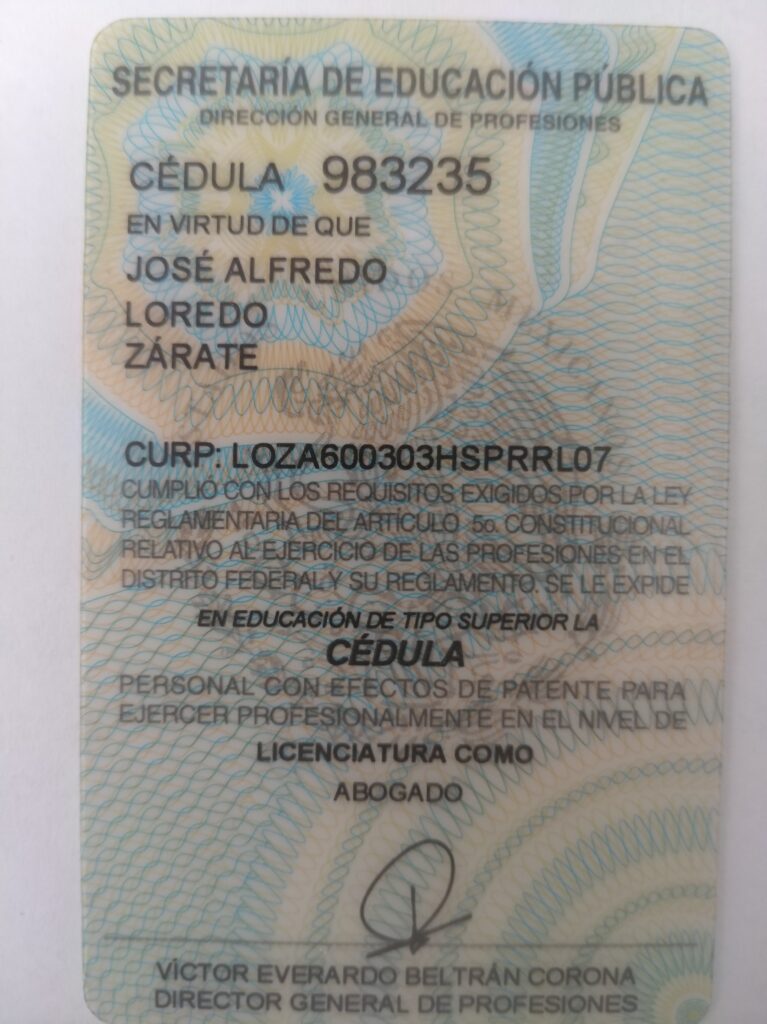
PREAMBLE
In articles 9 and 39 of the Political Constitution of the United Mexican States of 1857 and 1917 alike, the Mexican people, in their capacity as sovereign authority, are allowed to make use of their investiture to meet as constituent legislators, who can be 2 or more citizens in a public, peaceful way, to deal with the political affairs of the country on an eventual basis, and in it to be able to agree on the configuration and edition of another different constitutional document or fundamental charter that replaces the previous one, whenever any update on some changes in the existing one, it is up to those who meet periodically in the Congress of the Union (deputies and senators) as permanent constituents, but, it is clear that they do not have the right to create a new one, that alters or modify the form of government, which is only reserved for the people who make up the Mexican people.
ANNOUNCEMENT
The citizens of the people of Mexico are summoned to rehearse a Constituent Meeting, in which the political, social, economic and cultural issues of the country will be discussed. The assembly has a civil, original, independent, public, peaceful, itinerant and full powers category.
GENERAL OBJECTIVES
Get together to:
1.- Put into practice an action or activity consisting of a constituent meeting in order to perfect its execution.
2.- Test the development of a constituent meeting to determine if it can work or result as desired.
SPECIFIC OBJECTIVES
1.- Recover the freedom of the people;
2.- Restore the constitutional order of the Republic;
3.- Prosecute the intruders who have appeared and cooperated with the revolutionary State.
4.- Modify the form of government.
LEGAL POWERS
Those conferred by articles 9, 39 and 128 of the Mexican Federal Constitution of 1857, and its similar constitution of 1917 of the intruders of the revolutionary State, articles 9, 39 and 136.
Ninth American International Conference: Tobar Doctrine: Resolution XXXV non-recognition of de facto governments.
International covenant civil and political rights. Resolution 2022.
Recommendation 46/2022 CNDH (National Human Rights Commission).
BECAUSE IT IS IMPORTANT?
Military coups or revolutions such as those that occurred in the history of Mexico are not considered within the philosophy of law as legitimate ways to access the exercise of the powers of the State, the use of force and weapons to demand some rights. It only leads to public disorder and the commission of serious crimes attributable to the mutineers, who must be prosecuted in accordance with article 128 of the 1857 Constitution or its similar article 136 of the 1917 Constitution.
According to article 31-I of the legitimate Constitution of 1857, Mexicans have the obligation to: “to ensure the independence, territory, honor, rights and interests of their country.”
THE OBJECTIVES ARE LEGALLY PERMISSIBLE
Article 39 of both constitutions (1857 and 1917) allow the possibility of altering or modifying their form of government.
HOW TO ACHIEVE IT?
In the constitutional meeting of Mexico we will examine the legitimacy of the constitutional laws of 1857 and 1917, the situation of the Supreme Court and the Attorney General’s Office; we will make a recount of the damage of the rules broken by the intruders, then a proposal will come to liberate the people from the revolutionary state, restore the constitutional order of the Republic and prosecute those responsible, then a change in the form of the system of government towards a more highly democratic one such as the Demarchy, also, the change of model towards the “political center” of an ambidextrous state, and define the configuration of a Counterrevolutionary Resistance Plan.
MANIFEST
To the community of peoples and nations of the world.
To fellow Mexican citizens.
They are made to know:
The national sovereignty or power to activate its power of command and action of authority according to article 39 of the Constitution is deposited in the people. “Article 39.- National sovereignty resides essentially and originally in the people. All public power emanates from the people, and is instituted for their benefit. The people have at all times the inalienable right to alter or modify the form of their government.
From the above legal provision we understand that a people is “sovereign” and is in possession of a social omnipotence: All rights are theirs; otherwise it would not be omnipotent; and not being omnipotent it would not be sovereign. For the same reason all obligations are outside of him; because if he had any obligation to fulfill, he would be a subject: sovereign is he who commands, subject is he who obeys; Sovereign is he who has rights, subject he who has obligations. Thus the principle of popular sovereignty, which is an atheist principle, is also a tyrannical principle, because where there is a subject and he has no rights, and a sovereign who has no obligations, there is tyranny.
The principle of popular sovereignty does not recognize reciprocity in rights or limitation in obligations. The idea of just disappears where there are only masters and slaves: from here it follows that the principle of sovereignty, being atheist and tyrannical, is also an immoral principle, because it destroys justice. Justice and popular sovereignty cannot coexist in the world, which, once the existence of the first is recognized, the second is annihilated, because if the people can only do what justice demands of them, the people are subjects and justice is sovereign. Given this truth, the sovereignty of the people is absurd.
If sovereignty resides in the general will, and the general will is the collection of particular wills, all individuals must have a part of sovereign power: if sovereign power is realized only through laws, all individuals still minors must have an active part in the making of laws. The ignorant, for example, have the same rights as the wise, because they have a will like them: women have the same rights as men, because they have a will like them: children have the same rights as parents, because they have a will like them: the proletarians have the same rights as the powerful, because they have a will like them: in short, the insane must claim a part of their sovereignty, because when heaven denied them reason, it did not strip them of will and will makes them sovereign too.
Sovereignty of the people is an empty word. What idea does the people have of its sovereignty? Is it that of the source of authority? And how does it communicate it? And what does it reserve? And how is it contained in all of it? And with what right could it reside in any of its parts? How can it be redeemed from the inevitable inconveniences of its nature? then, with this the individual is essentially strong, powerful, free, one: then, in his will all the inconveniences of fact expire, and in his reason all those of right: then, is it intransmissible or is it perishable? because if it is transmitted, what is left for the people? If it is not transmitted, then the government is a usurpation, or it is an irony. Does it come from elsewhere? But from where? Is it divisible? What is its numerical ratio with respect to each person? What is its appreciative value in each nation? each individual? For example: When twenty thousand perish in a battle, how is sovereignty left? Do its modifications follow the ratio of those born and dead in the population census? Where is sovereignty if the intruders of a military or revolutionary rebellion?
In the case of the Mexican Republic, the intruding rebel military coup plotters and revolutionaries, by force of arms, usurped the powers of the Mexican Republic and implanted governments contrary to the principles enshrined in the legitimate and still valid Constitution of 1857. .
If an authority is illegal then it is not an authority, then; before the usurpation of the power on the part of the intruders: Who restores the legality in the middle of the anarchy?; Who organizes the procedure that tends to make the impostor governments of the intruding revolutionary State disappear? Who issues the call from which a legitimate government is born again? Who resumes the tradition of legitimacy in the new government?
Based on article 31-I of the legitimate Constitution of 1857, Mexicans have the obligation to: “watch over the independence, territory, honor, rights and interests of their country.” One of these obligations is to comply with the constitutional mission established in article 128 of the legitimate Constitution of 1857, which establishes the realization of the constitutional mission of defending the rights and interests of the country, such as the following: 1.- Recover the freedom of the village; 2.- Reestablish the constitutional order of the Republic; and, 3.- Judge according to the laws, those who had figured and cooperated in the governments emanating from the military and revolutionary rebellions.
With regard to article 39 of the Constitution, the current form of the false “system of the democratic regime” we find that the electoral processes do not meet the requirement of the mathematical formula of the will of the majority, which consists of obtaining half plus one of votes of the total number of voters registered in the electoral register, in contrast they imposed on us a method or modality called: “relative majority and proportional representation”, completely invalid because it is alien to the guiding numerical principle of democracy.
It is necessary to examine in what situation the sovereign authority of the Mexican people was left after the military and revolutionary rebellions, the constitutional law, the Supreme Court and the Attorney General’s Office; make a damage count on the rules broken by the intruders, promote a call to the nation to restore the constitutional order of the Republic and change the form of the government system, then, a proposal to specify the legally permissible objective of a “Meeting Constituent Assembly of Mexico” for the implementation of a: “Counterrevolutionary Resistance Plan” in accordance with the program posted on the following website:
https://reunionconstituyentedemexico.noblogs.org
In San Luis Potosi. Mexico., year 2022.
José Alfredo Loredo Zarate

